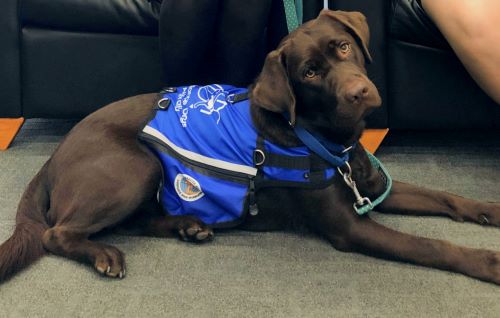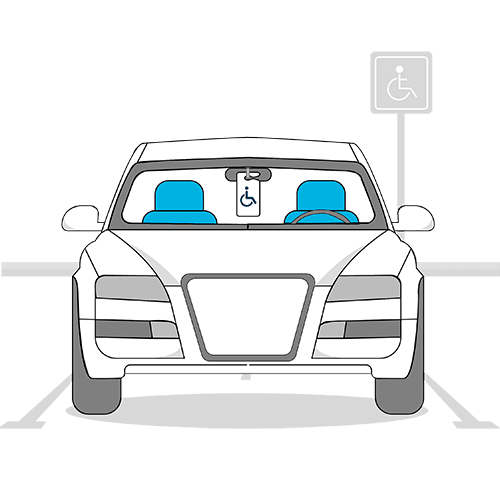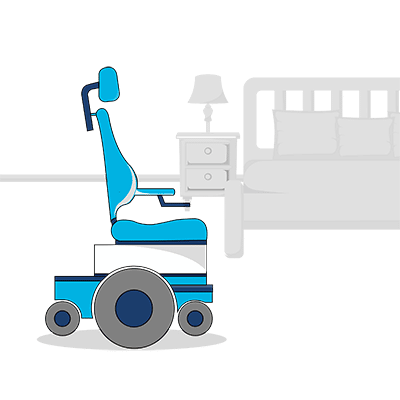You may already know the impact of Assistance Dogs when it comes to supporting people living with disability; but did you know their positive influence spans even further? The Pups in Prison program is a remarkable initiative that’s changing lives behind prison bars too.
Thanks to a special partnership with Assistance Dogs Australia, a women’s prison in Southern Queensland is the training site for a select few of these intelligent, compassionate puppies. Before we delve deeper into this incredible story, watch this video for a sneak peek at the Pups in Prison program:
Pups changing the lives of women in prison
The Pups in Prison program was designed to not only to help these dogs receive dedicated training on their road to becoming qualified Assistance Dogs. Its significant added benefit is providing the inmates with companionship and responsibility, which supports their mental health too.
As the promising young Assistance Dogs puppies learn the ropes of their integral role they’re also transforming the outlook and experience of the women who are training them.
The program recruits volunteers from the incarcerated women, who teach the puppies the emotional and physical support skills that each Assistance Dog needs to possess to support individuals living with PTSD, autism, or a physical disability.
The first Assistance Dog, Suzie (a loving chocolate Labrador), was trained by Jo. She told us:
“I’ve been in jail for 16-and-a-half years. Since I’ve been training Suzie over the past six months, she’s taught me so much. Now I’m actually helping people. I never knew what I wanted to do when I got out, but now I do. I want to keep helping people because I can’t give back any other way. I could never, ever imagine the change Suzie has made in me.”
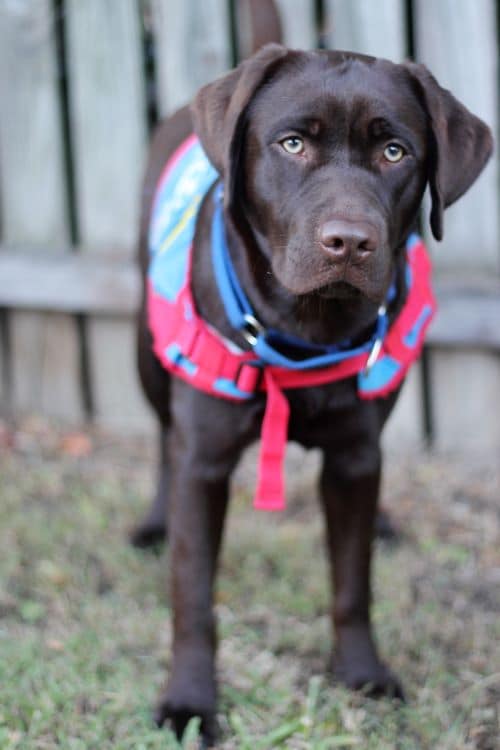
Pups in Prison is a gateway to inmates’ further education
This partnership with Assistance Dogs Australia enables the incarcerated participants to undertake a Certificate III in Companion Animal Services – the only one of its kind available in an Australian prison.
Upon release, these women will have the qualification needed for a range of roles, such as dog training, grooming, working at a pet store, and more.
The Certificate not only provides the training that can lead to fulfilling employment opportunities post-incarceration, it’s also a big motivator that helps increase their self-esteem and lowers the likelihood of re-offending.
Pups in prison supports the supply of Assistance Dogs in Australia
There’s no shortage of demand for Assistance Dogs in Australia, who quite literally change the lives of their companions in need. Given that the usual training duration is two years, this program serves as invaluable support; reducing the wait period and enabling greater Assistance Dog availability, sooner.
From pups in prison to fully fledged Assistance Dogs
As part of the Pups in Prison program, the puppies visit the prison when young and then “move in” once they reach 12 months of age. An Assistance Dogs Australia Instructor is there to support both the pups and participants during the program.
During their time in prison, the puppies also spend three weeks at a time in a more typical outside environment to help them build on their advanced skills.
Under the close guidance of professional dog instructors, the women work with these puppies across a range of behaviour and technical exercises to best assist their future human. This includes practicing daily activities like how to open and close a fridge, push a traffic light button and retrieve clothing, for example.
All activities have the intent of bringing increased independence and an improved assisted lifestyle for their new companion/handler.
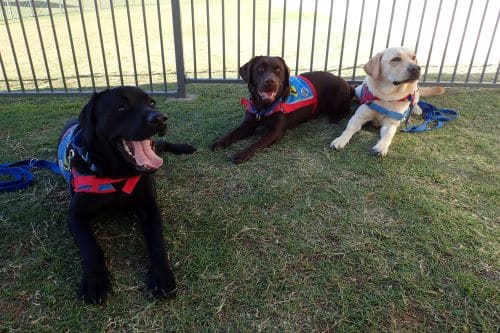
Training Courthouse Dogs
Jo is also responsible for training the first Courthouse Dog who’s been accredited by Assistance Dogs International.
The role of Courthouse Dogs is instrumental in supporting victims and witnesses of crime. These special animals are specifically trained to help individuals in this setting feel calmer and more capable of communicating essential information in cases.
How do they do this? Well, Suzie (and other Courthouse Dogs) have learnt how to notice signs of stress and will respond accordingly to help lessen any distress. Courthouse Dogs are also trained to behave exceptionally well over longer periods during court sessions, which can be several hours at a time.
For Jo, being able to train Suzie to assist in a courthouse setting has been a full circle moment. She says:
“Being in jail, and having victims myself, I haven’t been able to help my victims. Now knowing I can help other victims, it’s amazing. I feel that’s what I’m in jail for. What Suzie’s doing is why I’ve been put here to help others.”
This is just a glimpse of the positive impact that makes Pups in Prison a success on many levels. These dogs really do have a profound impact and leave a lasting impression on the hearts of the women convicted of a crime.
Jane Kefford, a Senior Instructor in Regional Queensland, says:
“Some of these people have not felt love in years. The dogs give love and allow prisoners to be who they are because they don’t judge. That’s the magic of the dog.”
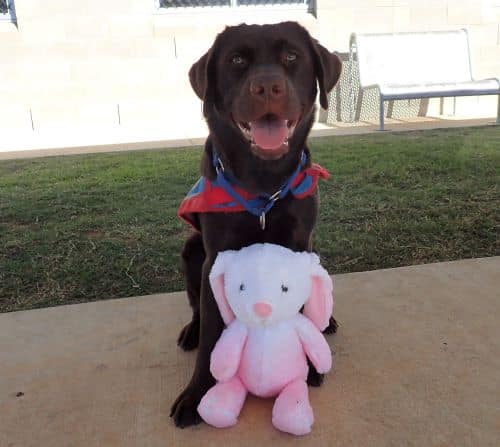
A meaningful future for women leaving prison
Jo now has a plan and new resolve for when she leaves prison, all thanks to her triumph in training Suzie. She explains:
“Suzie has opened me up and given me confidence because, hey well, I can actually do something, I don’t have to sit back and think I’m a failure. She has proved to me that I’m not a failure.”
Pups in Prison has proved to be highly valuable for all involved. Incarcerated participants develop life skills, find renewed pride in making a contribution to society, and prove to themselves they can achieve long-term goals. At the other end, pups with potential are trained to be professional Assistance Dogs. There is no question that the future of many is brighter because of this initiative.
Since Jo’s initial success with Suzie, the program has expanded to involve even more participants, and provide more individuals in need of Assistance Dogs.
We know the journey to raise and train an Assistance Dog is a long one and takes a dedicated, resilient “village” of helpers. This program also teaches us that Assistance Dogs can “pawsitively” impact and change the lives of individuals from all walks of life.
Assistance Dog insurance for a softer landing
Like all pets, Assistance Dogs can get injured or sick. When your service dog needs medical care, getting them better faster is crucial. Thankfully this need not be financially daunting when you have Assistance Dog insurance because your plan can help pay for vet care, pet hospital stays and much more.
Blue Badge Insurance offers up to 25% off Assistance Dog insurance and 15% discounted pet insurance for disability parking permit holders. Click below to get a quote.


